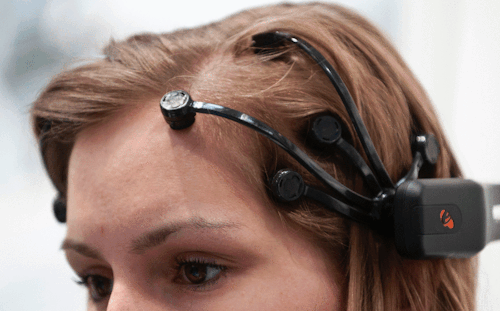
In a report today from Business Insider (link), they say: “With a jolt of electricity, you might be able to enter a flow state that allows you to learn a new skill twice as quickly, solve problems that have mystified you for hours, or even win a sharpshooting competition. And this just scratches the surface in terms of what we might be able to do to improve cognition as our understanding of the brain improves. With an implanted chip, the possibilities might be close to limitless.
Researchers think that as we learn more about the brain, we’ll be able to use electricity to boost focus, memory, learning, mathematical ability, and pattern recognition. Electric stimulation may also clear away depression and stave off cognitive decline. We’ll eventually even implant computer chips that allow us to directly search the Web for information or even download new skills — like Neo learning kung fu in The Matrix.
We’re heading down a path that will allow us to supercharge the brain. The key is decoding how the brain works. That’s the hurdle in the way, and the one that billions of dollars in research are going toward right now. “I don’t think there’s any doubt we’ll eventually understand the brain,” says Gary Marcus, a professor of psychology at New York University, and an editor of the upcoming book The Future of the Brain: Essays by the World’s Leading Neuroscientists.

BYPASS THE CENSORS
Sign up to get unfiltered news delivered straight to your inbox.
You can unsubscribe any time. By subscribing you agree to our Terms of Use
“The big question is how long it’s going to take,” he says. Most of the technologies that could enhance our ability to think play another important role, too. They may provide the keys to stopping cognitive decline, treating mental illness, and even restoring sight to the blind or hearing to the deaf.
Some of these techniques are already being used in that way. Stimulating the brain with electricity to treat ailments has a long history. The ancient Greeks and Romans, including Pliny the Elder, shocked themselves with the Atlantic torpedo ray to treat headaches. Treatments like transcranial direct current stimulation (TDCS) now show promise as a means of treating depression, epilepsy, and other drug-resistant brain disorders, according to Michael Weisend, a neuroscientist at Wright State Research Institute.
And neural implants show potentially far more possibilities. They already can transmit sound to the brain to provide a type of hearing for some deaf people. When connected to a tiny camera, they can even capture shape and motion and transmit them to the brain, providing a type of vision for certain blind patients.
Read the full article on Business Insider via Yahoo!Tech (link)

